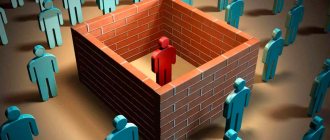Cognitive disorders: how to recognize and help a loved one in time?
Date of publication: 08.28.2020 From the life of the hospital
WHO recognizes dementia as a public health priority. The forecasts given by experts are alarming. Thus, according to the World Health Organization, in 2030 the total number of people with dementia in the world will be about 82 million, and by 2050 there may be about 152 million.
Dementia has become “younger”, and today it does not only affect the very elderly, but 9% occurs in people under the age of 65. There are many misconceptions associated with this disease. Not everyone knows that the cause of cognitive disorders can be not only heredity, but also poor lifestyle choices, bad habits, and excess weight. Previously, it was believed that the decline in cognitive functions with age is a normal process: a person ages, and therefore becomes forgetful, irritable, and confused. But today experts have come to a different opinion: the aging processes of the brain, which are irreversible, can be slowed down and help a loved one live longer in a clear mind.
Anastasia Vasilenko, a psychiatrist at the Stavropol Regional Psychiatric Hospital No. 1, Candidate of Psychological Sciences, spoke in detail about the causes and mechanisms of the appearance of cognitive disorders.
– What are cognitive disorders?
– Cognition is knowing. Cognitive means everything that relates to cognitive processes - perception, thinking, memory, attention, the ability to make plans and evaluate the consequences of one’s actions. Simply put, it is something that relates to the mind and intellect.
– What age people are at risk?
– If we talk about age dynamics, it is clear that we are always different. Every year we are different from who we were before. There is so-called healthy aging, and there are disorders and diseases. With healthy aging, a person does not have severe memory impairment, and he does not do anything absurd. When these disorders appear, we say that senile dementia or some other type of dementia begins to develop. Unfortunately, such cognitive impairments do not only occur in old age. In general, intellectual spectrum disorders can now begin after 40 years of age.
– Dementia or dementia: what is it and why does it begin to progress?
– Dementia is the loss of the ability to think, remember and remember correctly. When a person begins to develop intellectual spectrum disorders, the first thing that becomes noticeable is memory impairment. He becomes forgetful. Sometimes such disorders occur very early. In my practice, I have seen the development of dementia both at the age of 36 and at 27. If you notice that problems arise with memory, you should consult a doctor.
– Why does the brain start to work differently?
– There are two main forms of dementia. The first is due to genetic prerequisites. These are Alzheimer's disease, Parkinson's disease and some others. And there is dementia, which develops without such a genetic predisposition, but as a result of the fact that the brain suffers for other reasons. It never happens “suddenly”, it never starts suddenly. The development of dementia can be facilitated by lifestyle, the presence of diseases and negative environmental factors in which a person lives. Here it is appropriate to use such a concept as brain hygiene. At 17-20 years old, if there are no diseases, the brain is in excellent condition. And if a young man does not drink alcohol, does not smoke, does not use drugs, plays sports, is not overweight, and takes care of his health, his brain will remain in good shape for a long time. And there is a high probability of living to 70, 80, 90 years old with a clear mind.
Anastasia Vasilenko said that the cause of the development of dementia before the age of 30-40 can be chronic alcoholism, advanced endocrinological diseases, hypertension, smoking, a sedentary lifestyle, excess weight, and traumatic brain injuries. For these reasons, the blood supply to the brain is disrupted, and it gradually begins to die. If treatment is not started, dementia will develop catastrophically quickly.
The psychiatrist also recalled that against the background of a severe infection or some other disease, temporary memory loss and loss of attention may appear. But this happens due to the fact that the body is weakened. It’s worth healing, getting enough sleep, resting, and your intellectual abilities will be restored.
– What symptoms should alert you and make you go to the doctor?
– Even from a sedentary lifestyle, the brain suffers. The first symptoms to pay attention to are headaches, dizziness, and nausea. When they appear, you need to contact a neurologist. In this case, there are still no impairments in memory, attention, or cognitive functions, but the person feels heaviness in the head, gets tired quickly, has trouble thinking clearly at the end of the working day, and actively reacts to weather changes. This indicates insufficient blood supply to the brain.
Anorexia, illiterate vegetarianism, diabetes mellitus, and any endocrinological diseases can also lead to disturbances in the nutrition of nervous tissue. Important! If you are physically healthy, if you lead an active lifestyle and consult a doctor on time, and not just mindlessly take pills, then your brain will be healthy. But this does not apply to Alzheimer's and Parkinson's diseases.
– How to notice the first symptoms of Alzheimer's disease?
– Memory disorders and intellectual disorders are growing very quickly, which are more pronounced in Alzheimer’s disease than in senile dementia. The person suddenly becomes confused, cannot understand what is happening, because he does not remember current events well. Literally, if he turns away from you and turns again, he will think that he saw you for the first time. Such patients always look surprised and confused. There are also disturbances in speech and usual order of actions. Patients confuse words and cannot, for example, perform a simple test: disassemble and reassemble a ballpoint pen.
As Anastasia Olegovna noted, up to a certain point a person can understand for himself that he is developing dementia. He complains of a short-term memory disorder and forgets what happened a day or an hour ago. Whether treatment will be prescribed on time, how the disorder will progress - all this depends on the patient’s environment. It is the loved ones who must sound the alarm in time and not ignore the symptoms.
– Dementia can be accompanied by psychotic disorders: with or without delusions, hallucinations, aggression, significant behavioral disturbances. It is clear that if a person suddenly expresses delusional ideas (for example, “you want to kill me and take my apartment”) and behaves aggressively, then the relatives turn to a psychiatrist. But when there are no such obvious violations, and memory and intelligence fade away gradually, unfortunately, it is very late to seek help. And often relatives say that everything was fine “literally until yesterday.” But when you start asking questions, it turns out that five years ago the patient had forgetfulness, and two years ago she got lost on the street, and for the last year she has been afraid to leave the house because she is not sure that she will find her way back. Then it becomes clear that the symptoms appeared a long time ago. Patients with dementia often remember events from the distant past to the smallest detail, but current ones are not fixed in memory. Many people say: yes, my grandmother has such a memory, no one in the family has such a memory, she recites “Eugene Onegin” by heart. But in fact, this is a formidable symptom that current events are already being erased from memory.
– These disorders cannot be cured, but is it possible to somehow prolong mental clarity?
“Both relatives, doctors, and patients themselves understand that the process is irreversible. And this sometimes makes them refuse treatment, which is wrong. The more attention is paid to the disease, the better the doctor’s prescriptions are followed, the longer the patient will remain independent in simple everyday situations.
Medicines exist, their action is effective, but they do not reverse the development, because the dead nervous tissue is not restored. Medicines help neurons start working more actively: they become less tired, and a person maintains a high level of functioning longer. Drug treatment is necessary, but it alone is not enough. Supportive social events are needed. A person with dementia needs to be able to navigate where they live. To do this, it is necessary to maintain order in his room (every thing has its own place), place a clock and a calendar on the walls. It is important to keep the pills in the pill box and monitor how the patient takes them. And the main thing is to train skills that are needed constantly: going to the store for bread, dressing yourself, brushing your teeth. It is important not to try to do what a person can still do himself.
– In order for the brain to continue to function longer, you need to train those functions that you want to preserve. The brain is good at what it does every day. In order for it to remain “fresh”, you need to constantly learn. Dance, learn foreign languages, learn poetry, read books. Constantly learning keeps your brain sharp!
The full version of the interview broadcast on the Svoe TV channel can be viewed at the link
Watch and read us on social networks
The illustration for this publication was taken from the public image library https://www.freepik.com/ and from open sources. You can read in detail about using illustrations from the Freepik library here
What does cognitive mean?
The concept of “cognitive” is a characteristic indicating the relationship of an object to the cognitive sphere controlled by the brain. Cognitive functions include the most complex functions in the field of higher nervous activity: writing, speech, analysis of the surrounding world, perception of reality, memory.
In the process of life, a person acquires and constantly improves cognitive skills, his cognitive characteristics, which determine what in everyday speech we call the level of intelligence. The closest thing to the concept of cognitive is the meaning of the word “smart,” which also means “developed, quick-witted.”
Cognitive ability test from Vikium
Even short-term training of a number of cognitive abilities gives clear results. This is confirmed by research from the University of California. To understand how to improve cognitive and related brain functions, you must first determine your current level.
The most convenient way to do this is to use the Vikium service, which has established itself as the most advanced platform in this area. In a game form, it is proposed to devote only 15 minutes a day to the development of cognitive abilities. You can find time even with a busy schedule.
The program is compiled individually, since first the level of thinking is assessed in test form. The interpretation of abilities is built in relation to personal goals. This easily identifies the user’s needs, because as part of testing, it is proposed to indicate what exactly one would like to improve.
The advantages of the Vikium platform are the chosen unique approach to each user, since everyone has their own initial framework of cognitive development. In addition, the service’s training model is based on serious scientific developments.
The entertaining form of classes allows you to maintain interest in such a useful goal. In addition to individual puzzles, users can enter into competitions with each other. The choice of training is varied, you can play and develop for free, but the functionality and number of games will be limited.
If your goal is to seriously move to a new level of quality thinking, you can purchase an annual or permanent subscription and complete a full course of individually selected training.
Most of those who have developed cognitive abilities using Vikium platform simulators leave positive reviews on popular network sites. The service is also highly rated in reviews on this topic.
Wikium is constantly developing and adding to its functionality.
Higher brain functions
In order to better understand this issue, it is necessary to consider cognitive functions separately.
- One of the most important functions is attention. It can be characterized as the ability to concentrate mental processes on a specific object. Each person has individually expressed characteristics of this process, such as:
- Sustainability;
Concentration;
- Way to switch;
- Concentration;
- Volume.
- Another important function is human perception. It is compiled based on information that a person receives from the senses in the form of unified images. For this function, constancy is important, in other words, an object that is perceived by a person regardless of changing conditions is always perceived as the same. For example, a person can recognize an acquaintance no matter how he is dressed or where he is. Animals are deprived of this quality, which is why a dog cannot recognize its friend who will be standing in the dark or if he is wearing different clothes.
- Gnosis is the ability to recognize, visually identify images and compare them to categories.
- Memory - this cognitive function makes it possible to capture, store and reproduce previously received information at the right time.
- Intelligence is already the ability to “work” with the information received: to analyze, compare facts, evaluate, generalize, and so on.
- Speech is a unique skill through which people can communicate using symbolic signs.
- Praxis is a complex of abilities that form and include motor skills in a person’s activities and help him build, learn and automate the sequence of his movements.
All these characteristics change the quality of attention in different people. It is because of them that it turns out that some people easily remember something, while others cannot concentrate their attention. But all these characteristics can also be developed by working on yourself.
Below we will look at some of the functions in more detail. Since they are deeper and broader concepts, it will also help to better understand the nature of cognitive impairment.
Exercises to develop cognitive abilities
The development of the cognitive and analytical sphere of the brain is useful not only for improving the quality of life, but also as a means of avoiding diseases that manifest themselves in the area of higher nervous activity.
Simple exercises to “pump up” cognitive functions will not take much time, but will be a good remedy against Alzheimer’s disease. It is best to treat them as a form of recreation or entertainment. Then they will become part of everyday life, and the benefits will be obvious. Below are examples of simple exercises that help develop different types of brain activity:
- Use your left hand to write if you are right-handed, and vice versa. This will improve the nerve connections responsible for coordination.
- Write a list of words that express emotions (laughter, pain, sadness, euphoria, etc.) and come up with a detailed definition for each. This activity promotes analytical and abstract thinking.
- Choose a simple drawing and study its lines for a minute. Then turn the sheet over and repeat it in as much detail as possible. The exercise trains visual memory.
- Make a chain of words in which each next one begins on the last syllable of the previous one. This lesson is aimed at improving verbal memory and associative thinking.
Cognitive thinking
Starting from birth, a person trains cognitive abilities, learns to think and interact with the world. The activity of his brain improves through three main stages:
- visual-effective, in which the child studies objects visually and by touch and analyzes incoming data;
- visual-figurative - during this period, the assimilation of rules of behavior, basic logical principles, development of memory and speech occurs;
- abstract thinking - a person learns to operate with images and abstract structures.
Normally, all three stages pass before adulthood, but even at an older age you can develop cognitive thinking in any available way: learn to play chess, solve logical problems, develop calligraphic writing, read educational literature, solve crosswords.
A selection of educational board games and puzzles for adults and children
Cognitive psychotherapy
In the process of developing psychotherapy, a direction arose that explains mental disorders and disorders through thinking errors. Scientists who adhere to this theory believe that correcting stereotypes of perception, beliefs, and behavior patterns can help a person rethink difficult situations and remove internal negative factors.
A few final words
Cognitive functions are abilities that are associated with the human brain and depend on the human body as a whole. This is precisely the reason why disruptions in the quality of cognitive functions are observed in various disorders, damage to the brain or body, and under the influence of strong emotions. When these failures reach noticeable limits, these decreases in quality are called cognitive impairment.
And this, in turn, affects a person’s entire life, affecting his various spheres: from simple everyday life to the social and professional spheres of the individual.
Fortunately, today there are many ways to combat cognitive impairment. Therefore, if you feel that you have some problems, minor impairments in cognitive functions: memory lapses, difficulties with perception, etc., then you need to fight it using one method or another.
Books for the development of cognitive abilities
Interest in the development of cognitive skills can be satisfied with the help of literature on this topic. A wide selection of books allows you to find the source that is right for you.
- . A serious publication that substantiates the postulates of the relationship between the physical structures of the brain and the cognitive abilities of the individual. Scientific data and results of modern research in psychology and related sciences are presented, the latest methods for studying brain processes in the transition from behavioral to visual are considered.
A. Soboleva. A series of books for the development of the cognitive sphere in children in a playful and accessible form. Three manuals are aimed at improving basic functions: speech, memory, motor skills, attention, and include tasks for children and advice for parents.
Read other useful articles on the site:
- How to better develop a child: a review of children's developmental techniques, games, objects and exercises
- How to develop your brain: exercises
- Top 16 sites for developing intelligence
Development of cognitive abilities
The human brain, as a structure of interacting neurons, is very plastic and adapts to changes in external conditions and to the goals that its owner sets for himself.
If you set a goal, then regular training can lead to truly impressive results. You can act in standard ways, for example, learning long poems by heart or solving mathematical problems, or you can combine familiar methods with original ones.










